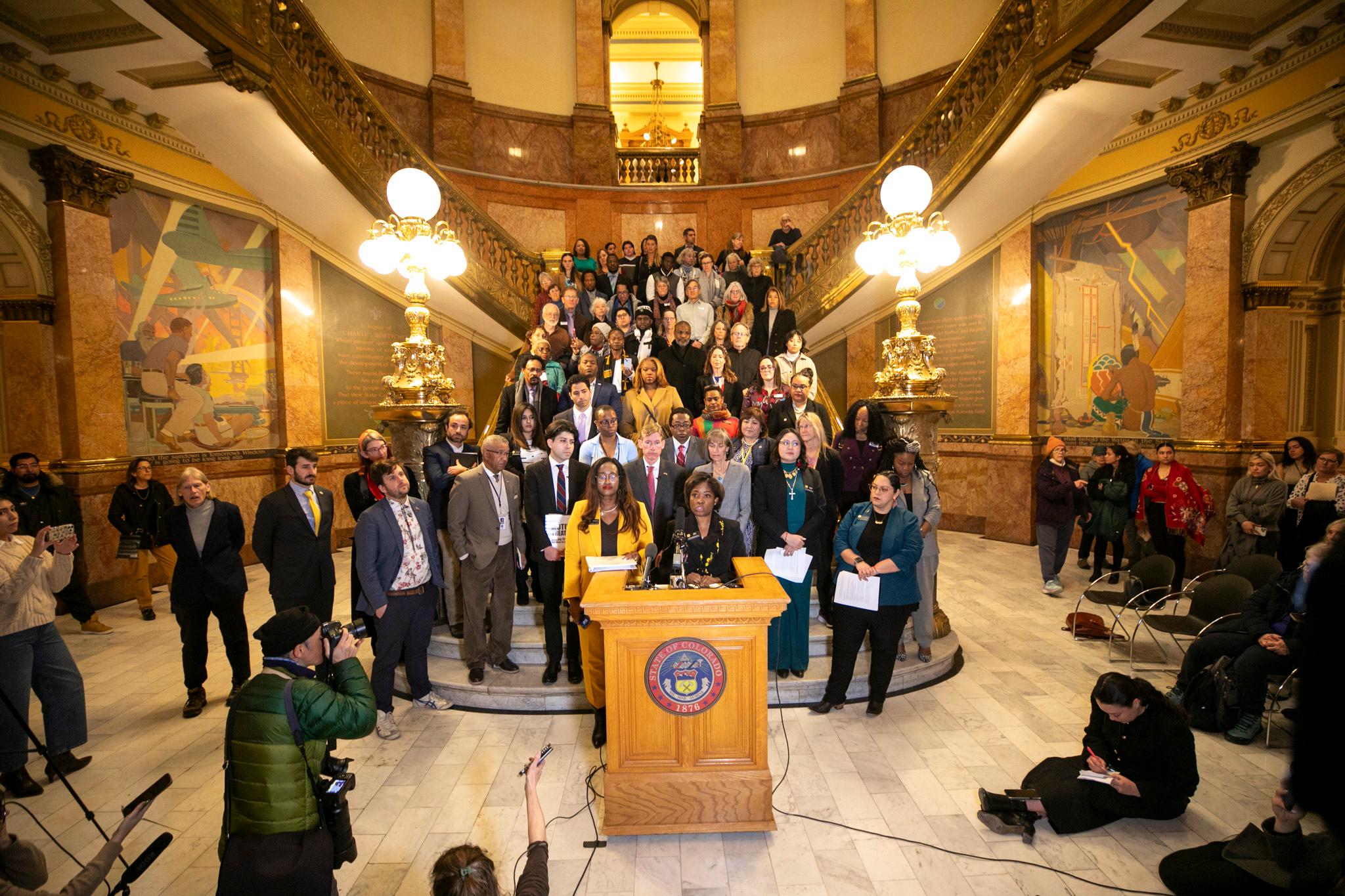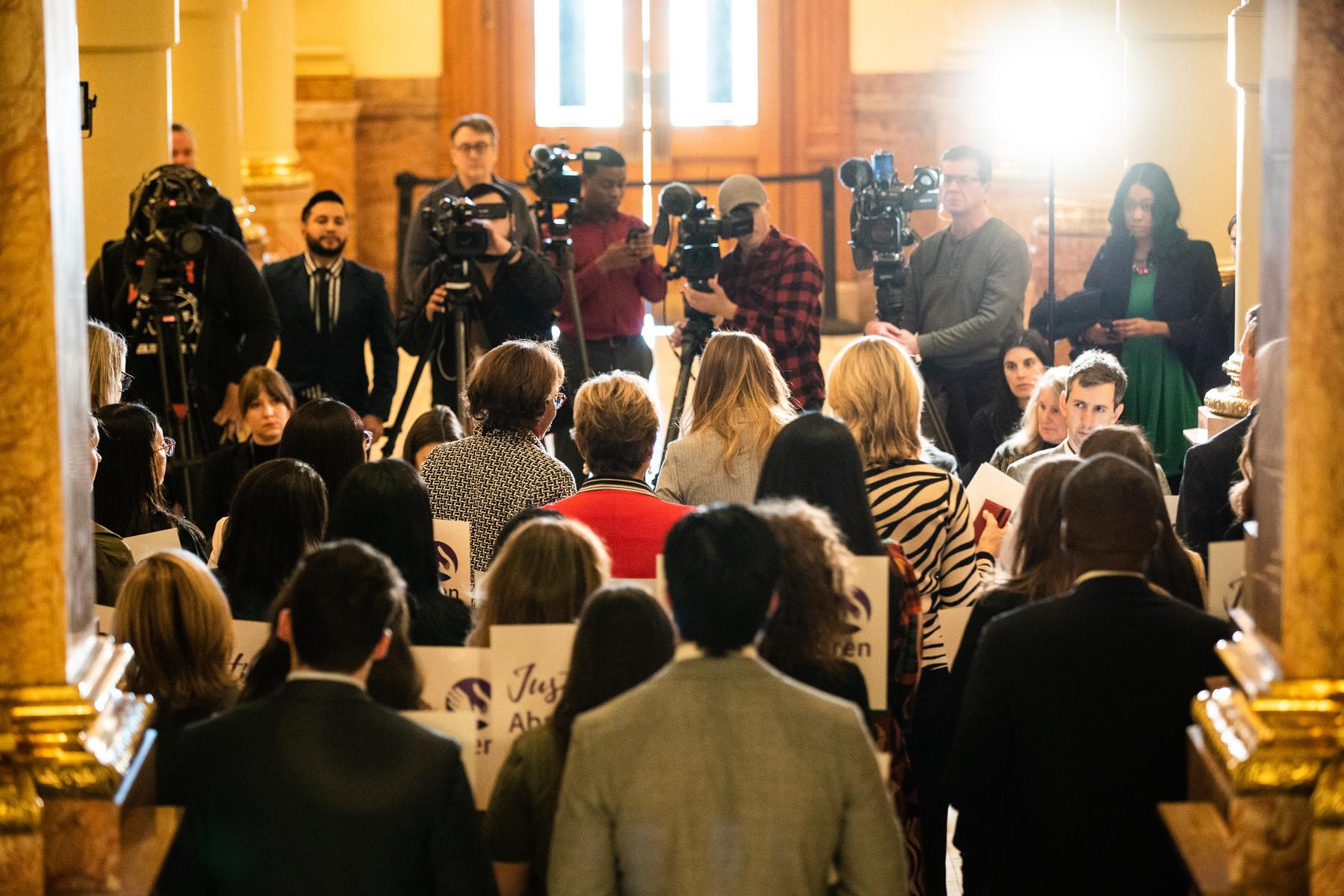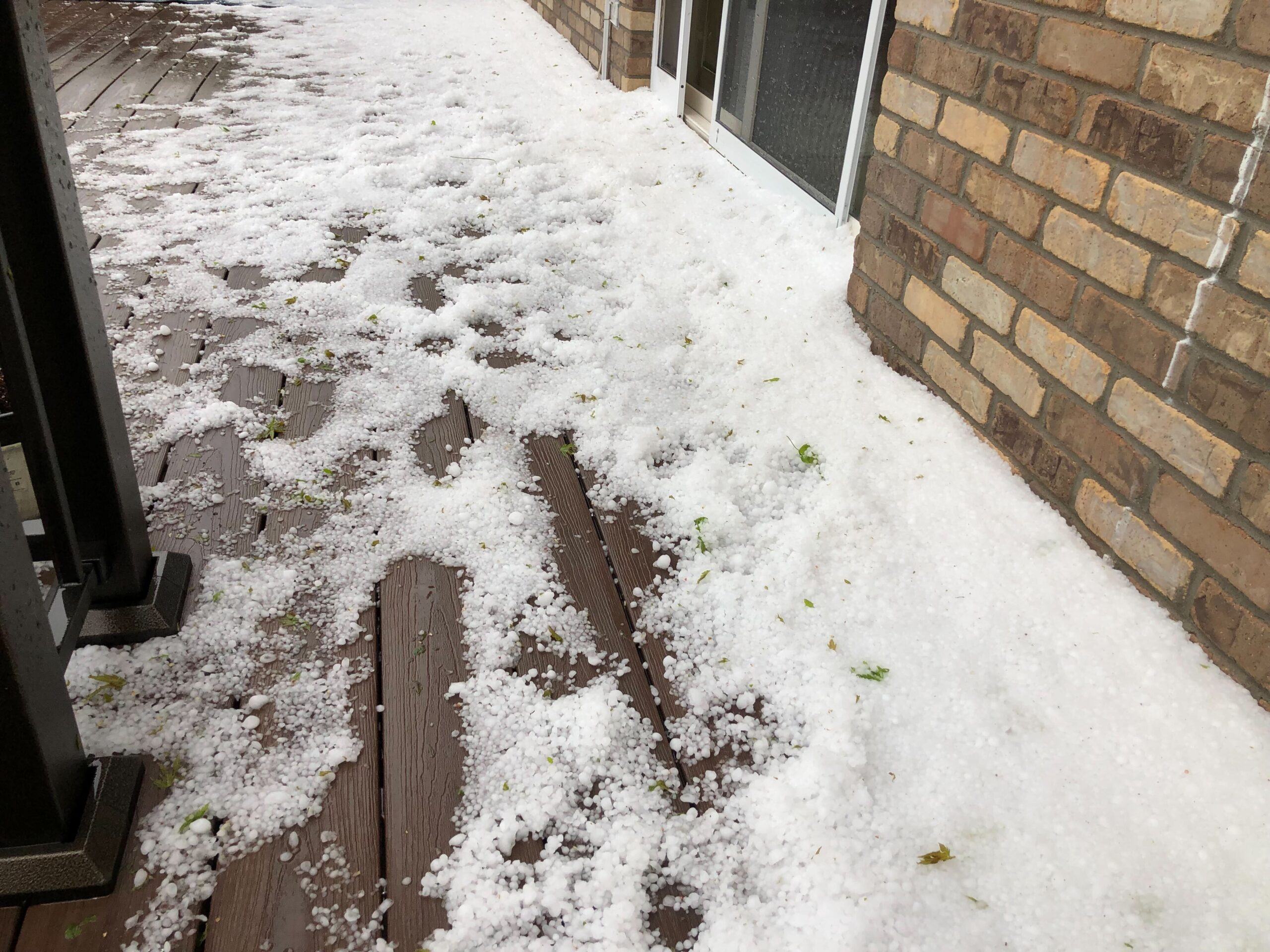
Colorado lawmakers and grassroots organizations gathered at the State Capitol Wednesday for a press conference to express support for immigrants living in Colorado. The event follows dramatic shifts in federal immigration policy, with President Donald Trump signing an executive order to restrict birthright citizenship and lay the groundwork for widespread deportations.
“The issue we are addressing today is one of urgent importance, especially in the face of dangerous rhetoric and harmful policies that threatens the wellbeing of millions of immigrant families,” state Rep. Junie Joseph of Boulder said. “Immigrants play an essential role in every facet of life here and Colorado contributing to our economy, our culture and the future of our state.”
Joseph is a naturalized U.S. citizen from Haiti. Her cohost for the event, Rep. Naquetta Ricks, immigrated from Liberia.

Joseph called for Trump and his administration to rethink its immigration policy, particularly any mass deportation efforts.
While the press conference didn’t include any concrete policy announcements, lawmakers there said they are working with Gov. Jared Polis to enact more protections for immigrants, as well as ensuring local law enforcement follows the state's laws on immigration enforcement, not the Trump administration’s new policies.
“We're in the process of reviewing those executive orders currently, and let us be clear, we've already ensured that local law enforcement should be following state law and not doing ICE's job for them,” said state Sen. Julie Gonzales.
Multiple speakers from different organizations also spoke at the event to share their stories and hopes for Colorado moving forward.

Keilly Leon with the Colorado Immigrant Rights Coalition told CPR she hopes lawmakers will continue the state’s momentum when it comes to supporting immigrants without legal status.
“Twenty years ago, it was a really anti-immigrant state, and now we have (driver’s) licenses (and) DACA and undocumented students can go to college paying the same tuition as any citizen,” Leon said. “So I hope we don't allow this insane anti-immigrant rhetoric that Trump has created to stop us from keeping that tradition alive.”
What else has happened since the executive order
The start of President Trump’s second term started this week with a flurry of actions on both sides of the immigration divide.
Colorado law prevents local police officers and agencies from cooperating with federal immigration officials in multiple ways. Three Republicans in Colorado’s U.S. House delegation have written to Gov. Polis urging the state to repeal those laws.
And the Justice Department has told its staff they should investigate any state or local officials who impede immigration enforcement, with the city of Aurora explicitly called out in its memo.
Colorado’s Democratic Attorney General, Phil Weiser has filed a lawsuit against Trump, joining 18 other states and two cities to block Trump's administration from ending birthright citizenship.
Weiser told CPR he wants to protect birthright citizenships and to stand with the U.S. Constitution.
“The Constitution makes very clear in the 14th Amendment that if you're born here on U.S. soil, you are a citizen. You have the rights of a citizen. Colorado has a lot of people who are here and will be here because of what's called birthright citizenship, I'm going to fight to protect them,” said Weiser, who is also running for governor. “This effort to undermine the Constitution by executive order is wrong. It’s not going to stand, and we're going to win in court.”
Denver Mayor Mike Johnson said the city will work with the administration to deport “violent criminals” but will oppose arrests in churches or schools, which under past administrations have been considered “safe spaces.” Trump signed another executive order to revoke that status.
“I don't care where you were born, but what that fear and rhetoric and division ends up leading to are more threats or more attacks,” Denver Sen. Gonzalez said during the Capitol press conference. “Children being afraid to engage in school, go to a library… These are now places where ICE thinks that they can come forward and conduct their activities. That doesn't look like safety to me.”










